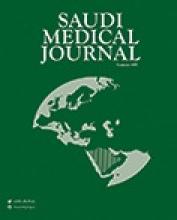23 September 2020 - The World Health Organization (WHO) together with the UN, specialised agencies and partners today called on countries to develop and implement action plans to promote the timely dissemination of science-based information and prevent the spread of false information while respecting freedom of expression.
WHO, the UN, UNICEF, UNAIDS, the UN Development Programme (UNDP), UNESCO, the International Telecommunication Union (ITU), the UN Global Pulse initiative and the International Federation of the Red Cross and Red Crescent Societies (IFRC), together with the governments of Indonesia, Thailand and Uruguay held a webinar on the margins of the 75th UN General Assembly to draw attention to the harm being done by the spread of misinformation and disinformation, the latter being deliberate misinformation to advance an agenda.
“As soon as the virus spread across the globe, inaccurate and even dangerous messages proliferated wildly over social media, leaving people confused, misled and ill-advised”, said UN Secretary-General António Guterres. “Our initiative, called “Verified”, is fighting misinformation with truth. We work with media partners, individuals, influencers and social media platforms to spread content that promotes science, offers solutions and inspires solidarity. This will be especially critical as we work to build public confidence in the safety and efficacy of future COVID-19 vaccines. We need a ‘people’s vaccine’ that is affordable and available to all.”
“Misinformation and disinformation put health and lives at risk, and undermine trust in science, in institutions and in health systems,” said WHO Director-General Dr Tedros Adhanom Ghebreyesus. “To fight the pandemic we need trust and solidarity and when there is mistrust, there is much less solidarity. False information is hindering the response to the pandemic so we must join forces to fight it and to promote science-based public health advice. The same principles that apply to responding to COVID-19 apply to managing the infodemic. We need to prevent, detect and respond to it, together and in solidarity.”
“On top of the immediate impact on pandemic responses, disinformation is undermining public trust in democratic processes and institutions and exacerbating social divides”, said UNDP Administrator Achim Steiner. “It’s one of the most concerning governance challenges of our time. UNDP is actively collaborating with Member States, fellow UN agencies, and other partners to find holistic responses which respect human rights.”
“Misinformation is one of the fastest growing challenges facing children today,” said Henrietta Fore, UNICEF Executive Director. “It takes advantage of the cracks in trust in societies and institutions and deepens them further, undermines confidence in science and medicine, and divides communities. In its most pernicious forms, such as when it convinces parents not to vaccinate their children, it can even be fatal. Because misinformation is more a symptom than a sickness, countering it requires more than just providing truth. It also requires trust between leaders, communities and individuals.”
“We can beat COVID-19 only with facts, science and community solidarity,” said Executive Director, Winnie Byanyima. “Misinformation is perpetuating stigma and discrimination and must not come in the way of ensuring that human rights are protected and people at risk and those marginalized have access to health and social protection services.”
“Since the start of the pandemic, UNESCO has mobilised its international networks of media partners, journalists, fact-checkers, community radio stations, and experts, to give citizens the means to fight against false information and rumours — phenomena that have been exacerbated by the pandemic,” said Audrey Azoulay, the UNESCO Director-General. “Collective mobilisation to promote quality and reliable information, while strictly ensuring respect for freedom of expression, is essential. A free, independent and pluralistic press is more necessary than ever.”
“Trust is a cornerstone of our digital world,” said Houlin Zhao, Secretary-General of the International Telecommunication Union. “Building on the long-standing WHO-ITU BeHe@lthy BeMobile initiative, ITU has been working with national ministries of telecommunications and health and mobile network operators since the beginning of this crisis to text people who may not have access to the internet, providing them with science- and evidence-based COVID-19 health advice directly on their mobile phones.”
WHO and partners urged countries to engage and listen to their communities as they develop their national action plans, and to empower communities to build trust and resilience against false information.
“Engaging communities on how they perceive the disease and response is critical to building trust and ending outbreaks,” said Jagan Chapagain, IFRC Secretary General. “If our response does not reflect the communities’ concerns and perceptions, we will not be seen as relevant or trusted by affected populations, and the epidemic response risks failure. More than ever, local responders are at the forefront of this crisis. We need to recognize the incredible role they play in understanding and acting on local knowledge and community feedback.”
The co-hosts also called on the media, social media platforms, civil society leaders and influencers to strengthen their actions to disseminate accurate information and prevent the spread of misinformation and disinformation. Access to accurate information and the free exchange of ideas online and offline are key to enabling effective and credible public health responses.
“UN Global Pulse was set up a decade ago inside the UN System to pioneer the use of real-time and predictive insights to protect vulnerable communities in times of crisis”, said Robert Kirkpatrick, Director of UN Global Pulse, the United Nations Secretary-General’s initiative on big data and artificial intelligence (AI). “During this pandemic we have seen a tremendous increase in requests for advanced analytics from across the UN System and Member States. We will continue to work with WHO and other partners to help identify and combat mis- and disinformation.”
Available from: https://www.who.int/news-room/detail/23-09-2020-covid-19-pandemic-countries-urged-to-take-stronger-action-to-stop-spread-of-harmful-information
- Copyright: © Saudi Medical Journal
This is an open-access article distributed under the terms of the Creative Commons Attribution-Noncommercial-Share Alike 3.0 Unported, which permits unrestricted use, distribution, and reproduction in any medium, provided the original work is properly cited.






